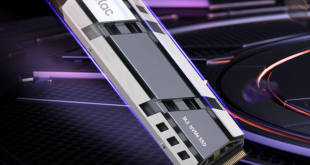The ASRock X99M Fatal1ty Killer is a well-designed motherboard that employs a number of creative tweaks. Gamers are likely to be satisfied by the multi-card support in addition to high-speed M.2 storage connectivity.
Performance-wise, ASRock's X99M Killer actually posted the highest set of combined scores that we have seen from any motherboard tested with the 5820K CPU. While that's not due to any particular hardware enhancements for the ASRock board, it comes from the 10% increase in CPU Cache Frequency that is applied via the BIOS.
The point being made is that ASRock's mATX part has no problems competing with full-sized ATX boards from a performance perspective.
Overclocking capabilities on the motherboard's CPU side were strong. We had no problem pushing our 5820K CPU to its 4.5GHz limit, and the built-in 4.6GHz profile was also stable, provided you have an adequate cooling solution (something better than the H100i). And if you do manage to mess things up on the overclocking front, ASRock's backup BIOS chip should have you covered.
Memory capabilities were far less positive, however, with the board supporting G.Skill's 3GHz Ripjaws4 kit, but posting a number of interfering errors through standard usage. Put simply, you should be able to run 3GHz memory speeds for benchmarking purposes, but don't expect to operate them on a daily basis unless you are happy to repeatedly fuss about in the UEFI.
As far as features go, ASRock's X99M Killer provides a healthy set of offerings. There's the strong audio solution, Killer and Intel NICs, gaming device enhancements, and support for 32Gbps M.2 SSDs. That last point is important for users who care about future-proofing their system – higher-than-10Gbps M.2 SSDs are getting ready to enter the market.
Two-card CrossFire and SLI support (alongside PCIe 3.0 x4 M.2) is good, although I would have liked more flexibility on the card positioning. That bottom, lower-bandwidth, PCIe slot should be able to switch lanes with the connector above to provide GPU placement flexibility. An unobtrusive mini-PCIe (or M.2 PCIe) connector for a wireless card would have been useful too.
Priced at £183.59 from Scan, ASRock's X99M Fatal1ty Killer motherboard represents good value for money. At less than £200, it is situated in the lower-cost segment for X99 motherboards, and its retail price is only £10-15 more than that of Gigabyte's direct competitor.
ASRock's X99M Fatal1ty Killer is close to being the motherboard for mATX gamers on the X99 platform. As it stands though, ASRock faces tough competition from Gigabyte's X99M-Gaming 5, and the differences between each board may be enough to throw a potential buyer either way. If you are unaffected by the minor shortfalls, the X99M Fatal1ty Killer is an excellent motherboard for your mATX system.
Discuss on our Facebook page, over HERE.
Pros:
- 32Gbps (PCIe 3.0 x4) Ultra M.2 connector.
- High-bandwidth CrossFire/SLI support alongside fast M.2 connection.
- Intel and Killer NICs.
- Positive audio system.
- Solid power delivery system with good CPU overclocking capacity.
- Plenty of connectivity – (up to six USB 3.0, ten SATA 6Gbps, eSATA, M.2 SATA compatibility).
- Easy-to-use UEFI and good range of OS software.
Cons:
- Not fully stable with 3GHz memory.
- PCIe slot configuration could be more flexible for dual graphics card users.
- Mini-PCIe (or M.2 PCIe) connector for a wireless card (alongside two graphics boards and an M.2 SSD) would be convenient.
KitGuru says: ASRock provides an ample number of features that is likely to keep many mATX gamers happy with the X99M Fatal1ty Killer motherboard. Support for two-card graphics configurations alongside the 32Gbps Ultra M.2 connector, is a clear highlight.
 KitGuru KitGuru.net – Tech News | Hardware News | Hardware Reviews | IOS | Mobile | Gaming | Graphics Cards
KitGuru KitGuru.net – Tech News | Hardware News | Hardware Reviews | IOS | Mobile | Gaming | Graphics Cards





Did you ever get the RAM issue with reboots with high speeds sorted? I am having the same issue, although when my PC reboots it doesn’t fail to start up, but with tight timings on my current 16GB set (CL12@2666) or high speed (CL14@3200Mhz) I can’t get the PC to stay turned off, but other than that the RAM runs fine for day to day use if I keep the computer turned on. I am on the latest 3.30 BIOS revision as well.
Thanks
You’d probably be better off with the newer USB 3.1 revision of the board, it has the OC Socket with extra pins and is way better for RAM, especially overclocking.
Thanks for the reply! I may look into that, but not really in a position to replace the motherboard. It’s been a little over a year since buying. Wonder if they could offer some form of trade-in for this issue since it does look like a BIOS bug/glitch? Or I would probably assume this would fall under a clause of, “Not officially supported RAM, so nothing we can do”. Anyone have any experience working with ASRock on these kind of issues?
I bought exactly the same setup 2 years ago. The the Asrock F-Streaming overclocking software could not get a stable result. Not even at 4.0ghz. Read the article and emulated your 4.6ghz settings at 1.36v. Stable as a rock. Ended up at 1.33v. Below that it becomes unstable. Aircooled (noctua NH-D14) never get’s above 60c under load and idles around 25-30c. Was thinking about getting a 7700k but there’s no need for that now. Thanks.